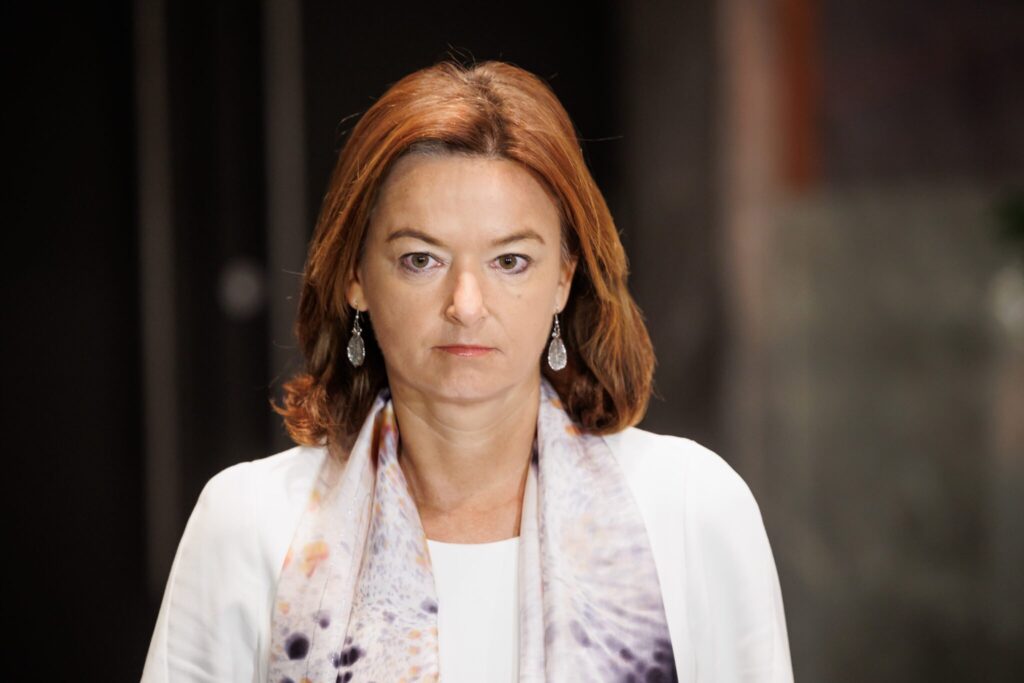After a little more than three months of the government of Robert Golob, the first outlines of the foreign policy of the new government are beginning to form. According to former Minister of Foreign Affairs Dimitrij Rupel, the actions of the new government are more or less following the path forged by the previous Janez Janša government. Rupel also has some strong opinions about the work of the new Minister of Foreign Affairs, Tanja Fajon. He believes that she does not have well-developed positions and beliefs when it comes to foreign policy. All this at a time that could be very dangerous for Slovenia and its foreign policy.
The Slovenian Minister of Foreign Affairs is currently in Kyiv. Her decision to visit the Ukrainian capital represents a complete reversal of her previous policy. Only a few months ago, shortly after the attack on Ukraine, she supported the resolution of the European Parliament that would have delayed the granting of candidate status to Ukraine, and she strongly criticised the former Prime Minister Janez Janša’s trip to Kyiv. Her trip is, therefore, surprising.
Dimitrij Rupel was very frank about the work of the government, and in particular, the work of its Foreign Minister, Tanja Fajon. “I hope that she won’t resent me for what I am about to say, but she does not have any particular beliefs or convictions in the field of foreign policy. She does not have any particular concept. She just does what her colleagues prepare for her, in the sense of – here are some selected invitations, and she responds to these invitations.”
Fajon went to Hungary without a problem
Rupel believes that Tanja Fajon is merely responding to invitations, but he also believes that the entire government of Robert Golob is more or less following the work of its predecessor. “It has now become clear that there is no big difference between this government and the previous one. After all, we saw Mrs Fajon travel to Kyiv, to Hungary; she is socialising with Central Europeans who they previously hated and called various mean names. I do not see a big difference between the former government’s foreign policy and the current one,” Rupel said, adding that the Prime Minister is part of the European community led by the French President Emmanuel Macron. Slovenia’s attempt to join the Franco-German train has so far not shown any results.
The Franco-German train has not arrived yet
The Former Minister of Foreign Affairs also reminded everyone of former Prime Minister and current President Pahor’s statement that Slovenia is a passenger on the Franco-German train: “Well, this train has not yet arrived at our railway station in Ljubljana, so we do not know yet whether we will actually board this train or not.” Rupel doubts that the authorities in Paris know much about Slovenia, however, Slovenia does have a longer tradition of cooperation with Germany, dating back to the time when our country gained independence. However, this tradition, Rupel pointed out, is linked to the conservative part of German politics, the Christian Democrats, not the Social Democrats, who belong to the same political family as the local Social Democrats. This is what he believes could be dangerous for Slovenia.
A dangerous friendship that could destroy our foreign policy
The German Social Democrats, with whom Tanja Fajon is said to have excellent relations – remember, in interviews before the elections, she boasted that she could call the German Chancellor Scholz at any time – have plans for the European Union that would simply destroy Slovenia’s sovereignty in the field of foreign policy. “It is about reforming the EU, which they imagine as one single country. The beginning of this is a question of majority decision-making in the European Council. So far, the rule was that for important matters, unanimity is needed for foreign policy decisions. But if by chance, the majority decision-making was to come into force in this case, it would mean that Slovenia would have no special role, it would virtually have no say.”
For something like that to happen, Slovenia would, of course, have to give its consent, as such decisions have to be taken by full unanimity. But if this were to happen, Rupel warns, it would mean the end of Slovenian foreign policy. “This is something new, and we should seriously think about it. And I am afraid that nobody is actually thinking about it.”
On underestimating Central Europe
The announced turn towards the core Europe, which was widely proclaimed by the coalition parties in the run-up to the elections, did not pass without a simultaneous humiliation or at least a condescending attitude towards the countries of Central Europe. Let’s just remember all of the insults about the alleged “Orbanisation” of Slovenia. Here, Rupel drew attention to certain natural features that the current authorities apparently do not see.
“The matter is very simple. Slovenia is a Central European country. Its national interests are very similar to those of the Czech Republic, Slovenia, Poland, Hungary, and the Baltic States. We are bound to have the same interests, whether we like it or not. And what certainly brings us closer to the other Central European countries is precisely the fact that we are like them. Our economies also have very similar problems.”
Andrej Žitnik


